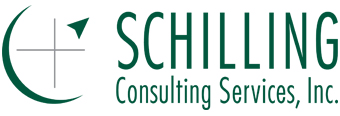A Communication Plan can help you manage change.
Dealing with Change? Rethink Communication. When unanticipated events occur, good or bad, very little else seems as important as communication. Communication is vital to managing through these changes that happen to us, as we gather and disseminate information, create focus and organization out of chaos, align resources, and so much more. Communication is also vital in all types of Plans such as Strategic Planning, Business Plans, and Contingency Plans. At their core, these Plans are also about change, change that we are initiating, playing critical roles in preparation, engagement, and execution. So, whether you are responding to unanticipated change or initiating changes of your own, there is a need to effectively communicate to all stakeholders. When this is done well, things go more smoothly. Shortchange the communication, and inevitably it will cost you engagement, time, and progress.
Plan the Communication I once worked in the Planning Department of a large organization. The Marketing Team was responsible for communicating all new initiatives and major organizational changes to the workforce. I was impressed with how well this was done on a consistent basis, so one day at lunch, I asked a colleague in that Department how they did it. They answered that they always used a Communication Plan and they showed me their template. A Communication Plan provides you with an organized framework for thinking through who needs to know what, when and how they need to know it, and most importantly (and often overlooked), why you want them to know it and what you want them to do with that knowledge.
Role is the Key This last part is key. We tend to think communications is all about the message and the medium (channels used to deliver the message). But the best communication efforts have their origins “upstream” in careful thinking about the role you want each stakeholder group to assume in your change effort. What you want each stakeholder to do in responding to the event or implementing the Plan? Do they need to take on different responsibilities or advocate for the change? Do they need to lend support in the form of resources, expertise or time? Or do they just need to be informed? The role you want each stakeholder to play in the process is best achieved through different kinds of messaging and channels.
Use a Template Since that lunch conversation with my colleague in the Marketing Department, I have used a similar template in many projects and client engagements, always with great success. If you are in a larger organization, check with the Marketing/Communications Manager or team; chances are they may already have a Communication Plan template that they would share with you. You are also welcome to use mine. Just drop me a quick e-mail (jeff@schilling-consulting.com) and I will send it to you. I would also be glad to talk you though it if needed.
Not a Task but a Tool Next time you are preparing an important communication related to the present or a future unanticipated event, or preparing to implement a Plan, try using a Communication Plan. It can help you go way beyond sharing information.
If you need help with preparing a Communication Plan or any other aspect of Plan implementation, contact me at your convenience.
Jeff
